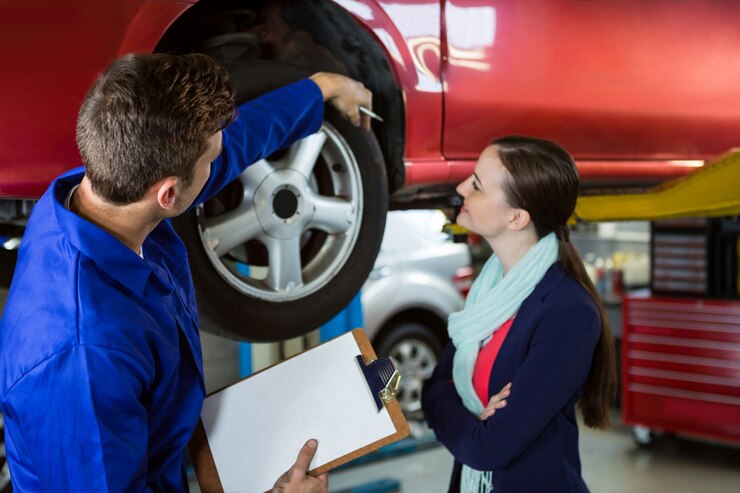Introduction
Maintaining your vehicle is essential for ensuring its longevity and optimal performance. A well-maintained car can offer years of reliable service and help avoid unexpected breakdowns and costly repairs. By focusing on regular maintenance, you can enhance safety, improve fuel efficiency, and extend the lifespan of your vehicle. This article covers essential tips for vehicle maintenance that can help you keep your car running smoothly and efficiently.
Importance of Regular Maintenance
Regular vehicle maintenance is the foundation of a long-lasting and well-performing car. It involves a series of routine checks and services that keep your vehicle in top condition. Skipping these routine tasks can deteriorate performance and even cause significant mechanical failures. Following a maintenance schedule, you maintain smooth operations and prevent minor issues from becoming major problems. Regular upkeep can also ensure that all critical systems, such as the engine, transmission, and brakes, function correctly. Additionally, regularly inspecting auto parts and replacing them as needed helps maintain vehicle integrity and performance.
Checking and Changing Engine Oil
One simplest yet most important maintenance task is checking and changing your engine oil. Oil lubricates, cleans, and cools critical engine components, reducing friction and minimizing wear. Checking the oil level and quality regularly ensures that your engine runs smoothly. Changing the oil every 3,000 to 5,000 miles is recommended, although this can vary based on oil type and vehicle model. Regular oil changes help improve engine performance, fuel efficiency, and emission levels. If you need clarification on what oil is best for your vehicle, consult a trusted auto parts store for recommendations tailored to your needs.
Tire Care and Maintenance
Proper tire care is crucial for your vehicle’s safety and performance. Tires affect handling, fuel efficiency, and road grip. Regularly check tire pressure, align tires, and rotate them every 5,000 to 7,000 miles to ensure even wear. Keeping tires inflated to the manufacturer’s recommended pressure prevents premature wear and potential blowouts. Also, the tread should be examined regularly for signs of wear, and tires should be replaced when necessary. Attending to your tires ensures safer driving conditions, enhances fuel economy, and extends tire life.
Brake System Inspection
The brake system is paramount for vehicle safety, requiring regular inspections to ensure efficient operation. Regularly check the brake pads, rotors, and fluid levels. Signs that your brakes might need servicing include squeaking sounds, braking vibrations, or a spongy pedal. Addressing brake issues promptly is crucial for reliable stopping power and preventing potential accidents. Inspecting your brakes every 10,000 to 12,000 miles or whenever you suspect a problem is advisable.
Cooling System Care
The cooling system regulates your engine’s temperature and prevents overheating. Regularly check coolant levels and flush the cooling system according to your car’s maintenance schedule. Inspect hoses for leaks and the radiator for signs of corrosion or damage. Proper cooling system maintenance ensures your engine remains at an optimal temperature, reducing the risk of heat-induced failures and costly repairs.
Battery Maintenance
A reliable vehicle battery is crucial, especially in extreme weather conditions. Regularly check the battery’s charge, especially if your vehicle has been idle for some time—clean terminals to avoid corrosion, which can impede power flow. The average car battery lasts about three to five years so regular testing can prevent unexpected failures. By monitoring battery health and replacing it as needed, you minimize the risk of being stranded due to a dead battery.
Importance of Quality Auto Parts
Opting for quality auto parts during replacements significantly affects vehicle performance and longevity. High-quality parts ensure excellent compatibility and reliability, reducing the need for frequent replacements. When parts align precisely with your vehicle’s specifications, they can efficiently do their jobs, minimizing wear on other components. Whether for brakes, filters, or tires, investing in reliable parts offers peace of mind and ensures sustained vehicle performance.
Seasonal Care Tips
Different weather conditions require specific maintenance checks to keep your vehicle performing optimally. In colder months, ensure your antifreeze is full and opt for winter-grade oil for better starting performance. During summer, test the efficiency of your air conditioning system and maintain adequate tire pressure to prevent blowouts. Seasonal precautions help adapt vehicles to varying conditions, ensuring reliability and safety throughout the year.
Conclusion
Keeping your vehicle in top shape involves more than just filling the tank. Regular maintenance focuses on critical components like engine oil, tires, and brakes, ensuring performance, safety, and reliability. Any vehicle owner must opt for quality parts and adjust their care routine based on seasonal changes. By prioritizing these maintenance tips, you ensure your vehicle’s longevity and optimal performance, safeguarding your investment for years.




